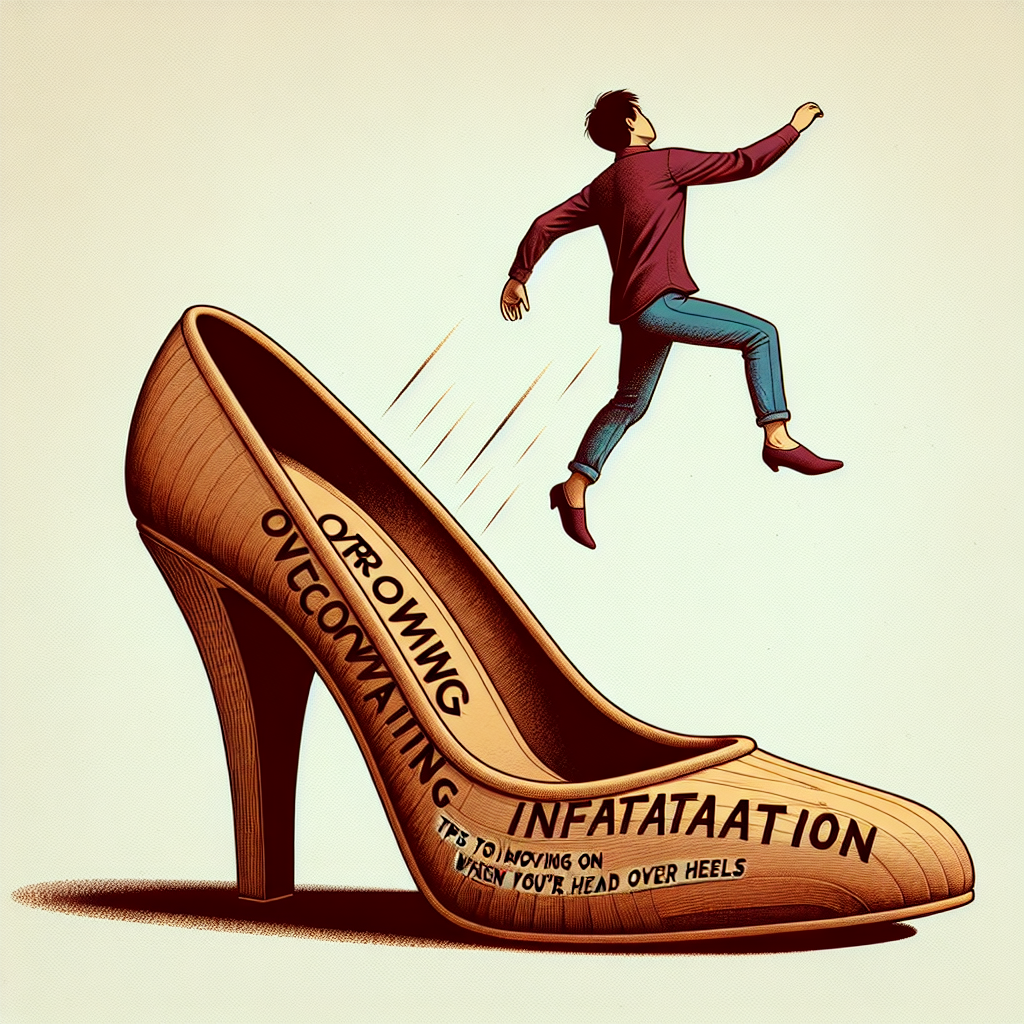Introduction
Have you ever found yourself head over heels for someone, only to realize that your infatuation might be clouding your judgment? Infatuation can feel exhilarating, but it can also lead to emotional turmoil when it’s time to move on. Understanding how to navigate these waters is essential for personal growth and emotional health. In this article, we’ll delve into Overcoming Infatuation: Tips for Moving On When You’re Head Over Heels, providing you with invaluable insights and effective strategies to reclaim your peace of mind and happiness.
Understanding Infatuation
What is Infatuation?
Infatuation is often described as an intense but short-lived passion or admiration for someone. It’s characterized by feelings of excitement and adoration, but these feelings can distort reality, making it difficult to see the person objectively.
The Psychology Behind Infatuation
When you’re infatuated, your brain releases a cocktail of hormones, including dopamine and adrenaline. This creates feelings of euphoria, making it challenging to think rationally. Understanding the psychological factors at play can aid in overcoming infatuation and moving on effectively.
The Importance of Moving On
Emotional Health
Staying stuck in infatuation can lead to emotional distress, anxiety, and even depression. Recognizing the importance of moving on is the first step toward regaining your emotional balance.
Growth and Self-Discovery
Letting go of an infatuation opens the door for new experiences and deeper understanding of yourself. Every experience, good or bad, provides an opportunity for growth.
Tips for Overcoming Infatuation
1. Acknowledge Your Feelings
Recognizing that you’re infatuated is essential for moving forward. Denying your feelings can prolong the process. Allow yourself to feel what you feel, and understand that it’s a natural part of life.
| Tip | Details |
|---|---|
| Acknowledge | Write down your feelings in a journal. |
| Reflect | Assess what drew you to the person initially. |
Case Study: Sarah’s Diary
Sarah found solace in journaling her thoughts about her crush, which helped her understand her feelings more clearly. Writing provided her with a safe space to analyze her emotions without judgment.
2. Create Distance
Once you’ve acknowledged your infatuation, creating distance from the person can help you regain perspective. This could mean limiting your social interactions or even removing them from social media.
Analysis
By distancing yourself, you allow your feelings to settle and give yourself the space to think clearly.
| Method | Benefit |
|---|---|
| Social Media Block | Reduces triggers for non-stop daydreaming |
| Limited Contact | Provides necessary emotional space |
3. Focus on Yourself
Redirecting your energy toward self-care and personal growth is vital. Explore new hobbies, invest in your professional development, and nurture relationships with friends and family.
Case Study: John’s Transformation
John immersed himself in fitness and wellness after a failed infatuation. Not only did he shed his emotional burden, but he also gained new friendships and improved his health.
4. Seek Support
Talk to friends or family about your feelings. Surrounding yourself with a supportive community can provide comfort and perspective, helping you ground your emotions.
| Support Type | Description |
|---|---|
| Friends | Share your experiences and hold each other accountable. |
| Therapy | Professional guidance can provide tools for moving on. |
5. Set Goals
Setting personal goals can take your mind off your infatuation and reinvigorate your sense of purpose. Choose achievable milestones that resonate with your interests.
Analysis
Goals serve as markers for progress, helping you feel accomplished and focused on the future.
| Goal Type | Example |
|---|---|
| Personal | Start a new hobby |
| Professional | Enroll in a course |
6. Embrace New Experiences
Engage in activities outside your comfort zone. Traveling, volunteering, or even joining clubs can introduce you to new people and perspectives.
Case Study: Emily’s Adventure
Emily took a solo trip after a painful infatuation. This experience not only broadened her horizons but also allowed her to meet new people and develop new passions.
7. Be Patient with Yourself
Moving on from infatuation won’t happen overnight. Be kind to yourself during this healing process, and don’t rush your emotions.
Analysis
Understanding that healing is a journey will keep you grounded and focused on progress rather than perfection.
Conclusion
Overcoming infatuation may seem daunting, but with the right strategies, you can regain control of your emotions and harness this experience for personal growth. By acknowledging your feelings, creating distance, and redirecting your focus to self-improvement, you’ll not only move on but also emerge stronger and more self-aware. Remember, Overcoming Infatuation: Tips for Moving On When You’re Head Over Heels is about reclaiming your happiness and embracing the journey ahead.
FAQs
1. How long does infatuation typically last?
Infatuation usually lasts between a few weeks to a few months, but the duration can vary based on individual circumstances.
2. Is it normal to feel sad after moving on from an infatuation?
Absolutely. It’s normal to feel a sense of loss, even if you know moving on is for the best. Give yourself time to heal.
3. What’s the difference between infatuation and love?
Infatuation is intense but often fleeting, while love is a deeper emotional connection built over time.
4. Should I talk to the person I was infatuated with after moving on?
It depends on your emotional state. If you feel healed and ready, a friendly conversation can be fine; otherwise, it’s best to maintain distance.
5. Can infatuation lead to depression?
Prolonged infatuation without resolution can lead to negative emotional states, including depression. Seeking professional help is advisable if you find your feelings overwhelming.
By following the tips outlined in this article, you can successfully navigate the complexities of infatuation and come out on the other side feeling empowered and ready for new experiences. Whether you’re struggling to let go or hoping to understand this emotional whirlwind better, remember that moving on is a journey worth pursuing.

